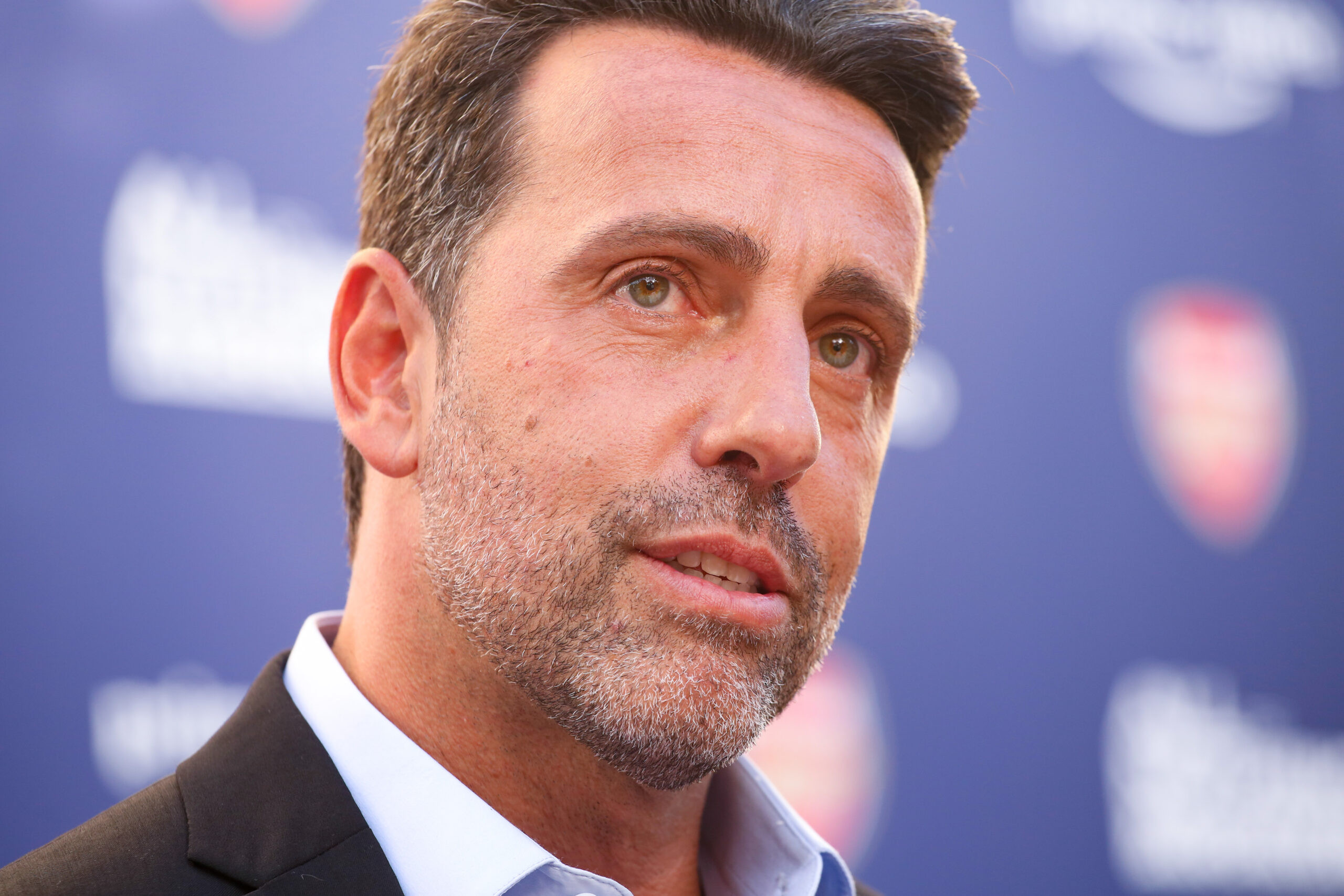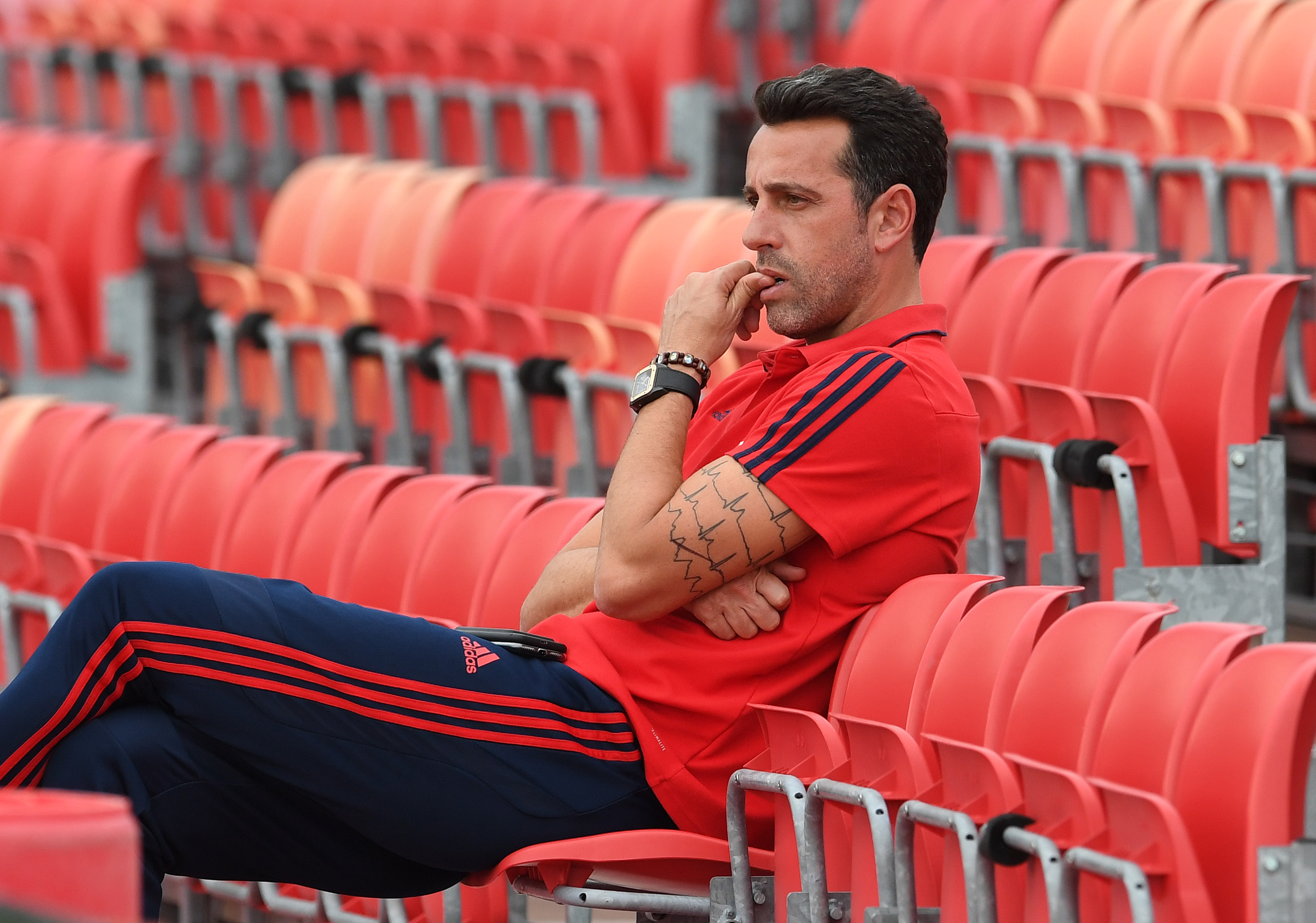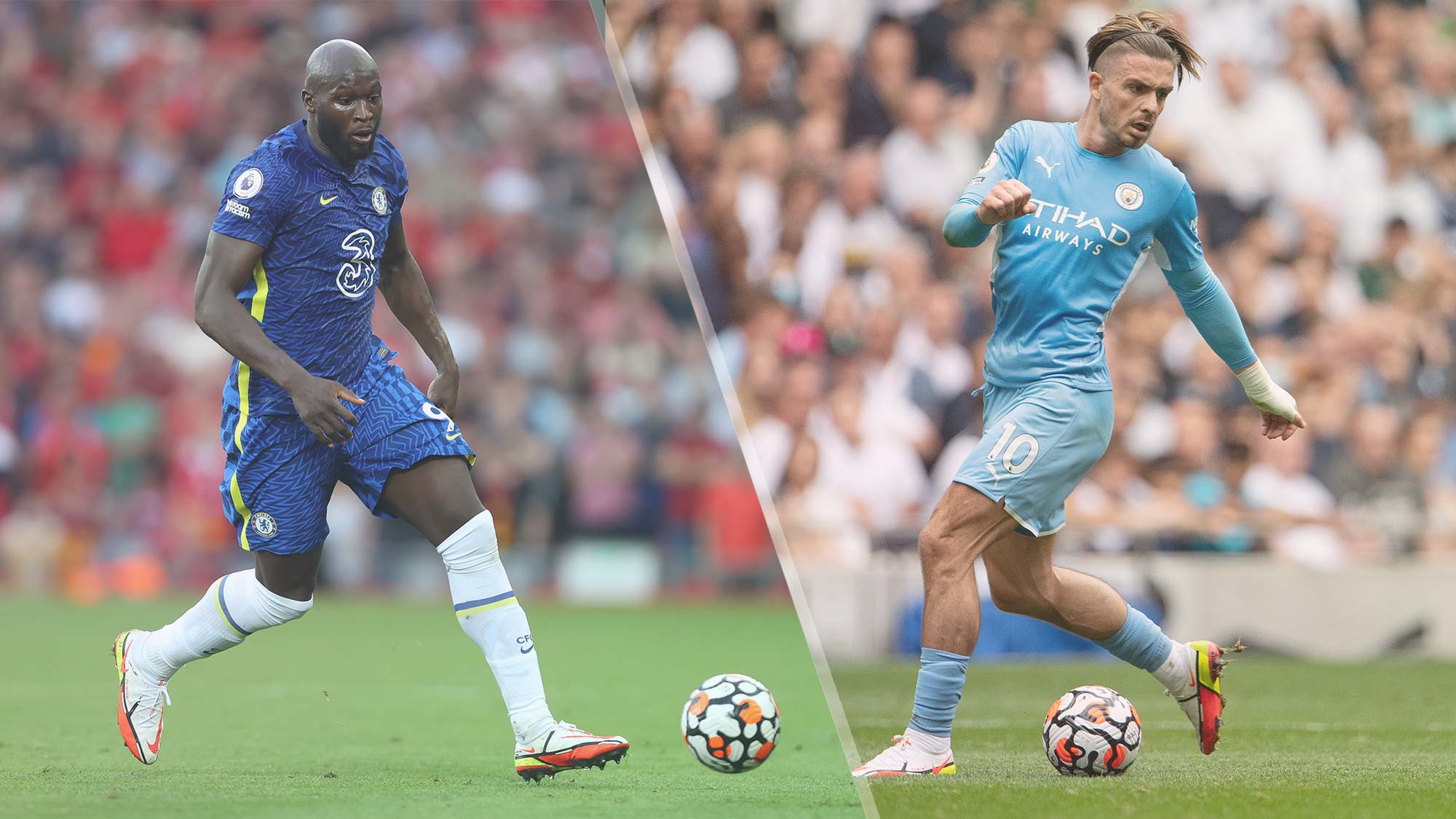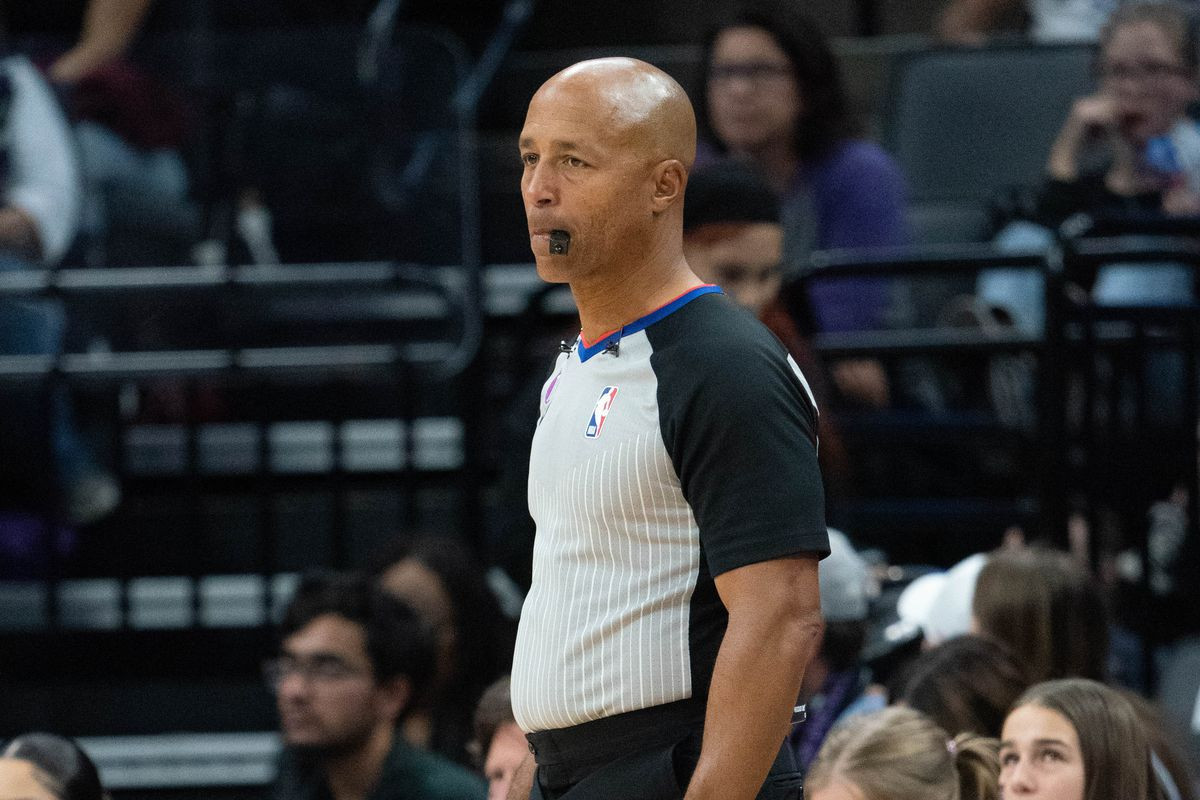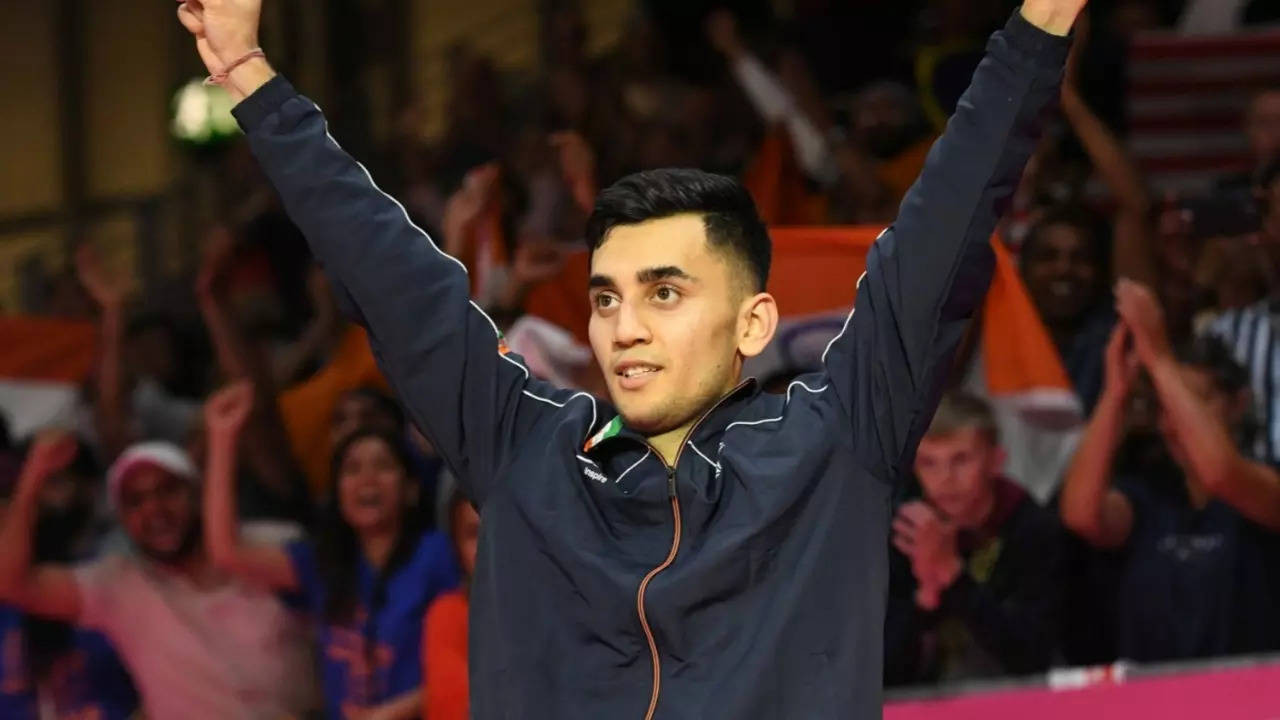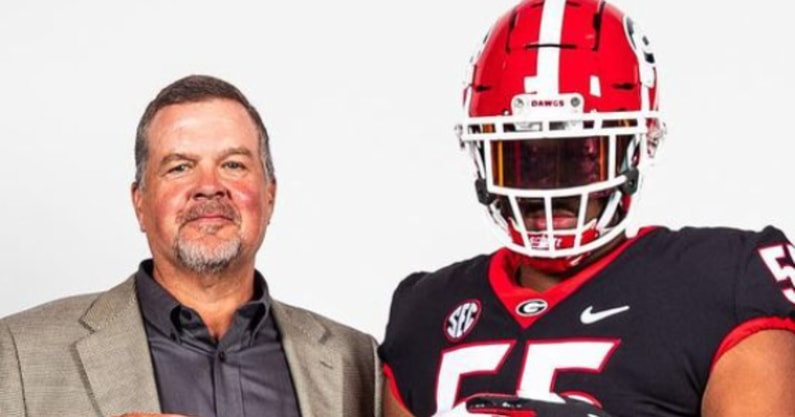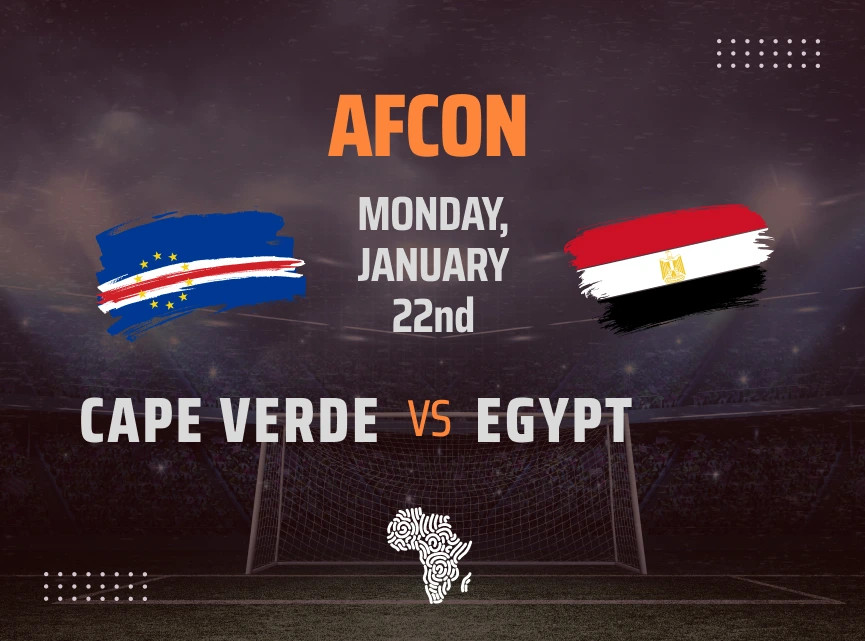When Arsenal announced Mikel Arteta had signed a new contract on Sept. 12, the Premier League club's manager was effusive in his praise of sporting director Edu Gaspar.
"He was the first one to knock on my door before I joined, and he made a big call to put all the trust he had in me to drive this massive boat in the direction and the way we both had a vision to do it -- and it's been pivotal," Arteta said. "Our relationship has been incredibly strong, very honest, very transparent and I'm very grateful for that."
At the same time, Edu reciprocated that sentiment. "We have a strong belief in what we are doing and what we want to achieve together," he said. "Mikel's new contract gives us stability and clear direction as we aim for new heights."
But on Monday, less than two months later, the Gunners announced that Edu had resigned. Sources have told ESPN he is set to head up Nottingham Forest owner Evangelos Marinakis' multiclub model, which includes Greece's Olympiacos and Portugal's Rio Ave.
Edu joined the club in 2019 after spending three years working with the Brazil national team as their technical director. With Edu having made 127 appearances for Arsenal as a midfielder in the "Invincibles" squad that won the 2003-04 Premier League title without losing a game, his appointment was greeted warmly by many supporters. He was brought in as part of a wider attempt to add sporting expertise following the departure of long-serving manager Arsene Wenger a year earlier.
Some of Edu's early transfers were criticised, however, as fans questioned the closeness of his relationship with certain agents, but that negativity dissipated as a radical overhaul of the squad began following Arteta's appointment to replace Unai Emery in December 2019. The Gunners were ruthless, paying up the contracts of nine first-team players to leave the club and, with that allied to concerted -- and often intelligent -- spending, results improved over time and Arsenal became serious contenders for the Premier League title again.
Edu was promoted from technical director to sporting director in November 2022 as a reflection of his influence, the club's first-ever occupant of both positions. The move gave him formal responsibility for the academy as well as men's and women's football. Sources have told ESPN he was instrumental in recent modifications to Arsenal's training base at London Colney and was often the troubleshooter in any disputes that arose there. Arteta used him as a sounding board -- one source suggested Edu was one of the few people the Spaniard could "vent" his frustration at -- and his charming, charismatic personality made him a popular figure internally and externally.
Arteta described their "special chemistry" when reflecting on Edu's exit on Tuesday. The pair were both essential in reestablishing core club values and driving up standards to improve the culture, which had drifted into mediocrity during the latter part of Wenger's 22-year reign, creating a stagnant feel Emery was unable to shake.
Reports of interest in Edu from elsewhere surfaced in Brazil over the summer. A source told ESPN that, around the end of the summer transfer window, senior figures at the club held an informal conversation with the 46-year-old in which those rumours were discussed but that nothing was explored further. There was no indication at that stage that he had a formal offer to consider.
The situation gathered pace in the past fortnight, however. Another source told ESPN that Arsenal's hierarchy became aware that something could be in the offing around two weeks ago and that internal discussions began. Dialogue involving Edu, Arteta, executive vice-chair Tim Lewis, managing director Richard Garlick and co-chair Josh Kroenke accelerated last weekend.
However, Edu had not indicated any intention to leave to a wider audience and did so only on Monday morning, when he began to circulate the news at London Colney. Multiple sources have told ESPN there was genuine shock among staff.
One source strongly rejects any notion that there was a power struggle that led to Edu's exit, with the situation more that he was made a hugely lucrative offer that promised a much wider remit across several clubs than a one-club sporting director position could ever provide. Arsenal are technically part of a multiclub operation, given owners Kroenke Sports Enterprises (KSE) also count MLS franchise the Colorado Rapids among several sports teams in their stable, but they do not pool players in the same way.
However, working with Marinakis offers something immediate, and reports have suggested Edu will be paid in the region of £5 million a year to oversee Forest, Olympiacos and Rio Ave. One source suggests that Arsenal made a counteroffer to improve Edu's salary but that that was swiftly rejected as his mind was made up.
There had been minor disagreements involving Edu. Sources have told ESPN that the club were split over whether to sign Spain midfielder Mikel Merino from Real Sociedad, with Arteta particularly keen on adding his experience to the squad. Similarly, there was frustration at the loss of promising 16-year-old striker Chido Obi-Martin to Manchester United, with sources telling ESPN that Edu's relationship with the player's agent had become strained. But sources insist these were the sort of small issues that inevitably crop up in such a role and that Edu's departure was greeted with both surprise and sadness by staff.
Sources said that Edu was emotional in addressing players and staff at London Colney on Tuesday when saying his final goodbyes before the squad flew to Italy for a Champions League game at Inter Milan. Sources added that he leaves on good terms with senior figures at the club.
It has been confirmed to ESPN that Edu has begun a six-month notice period and will not be involved in the day-to-day running of the club during that time. He cannot therefore begin work for Marinakis until late April/early May. In the meantime, Edu assistant Jason Ayto will step up on an interim basis and assume some of the responsibilities that were vacated while the search for a successor begins.
Arsenal's football management unit comprises Arteta, Garlick, Lewis and James King reporting up to KSE, specifically owner Stan Kroenke and, more often, son Josh. King starts work at the club on Monday having rejoined to take up Garlick's old role as director of football operations, after Garlick became managing director earlier this year when Vinai Venkatesham left.
Sources have told ESPN that several executives will fly out to Los Angeles on Monday to meet with the Kroenkes to discuss plans for the next two transfer windows. This meeting always takes place during the November international break and was not a specific response to Edu's departure.
However, there is no succession plan in place given how central Edu was to Arsenal's strategy and the unexpected nature of his departure. The club will hire a replacement for Edu, but there is no timescale set for an appointment and a proper process will be followed. Arsenal have previously appointed individuals with a connection to the club in prominent roles -- Edu, Arteta and academy boss Per Mertesacker were all former players. However, that was a happy coincidence rather than a strategy, and therefore the net will be cast much wider.
The club are yet to identify the right profile for a sporting director -- some have a skill set suited to negotiating, others to mediation or presentation. There is an acknowledgment that Edu is an extremely difficult character to replace like-for-like given he offers the all-round package of experience and success in the role while also being a club legend.
Sources said there is no particular urgency in the context of transfers with the January transfer window looming. The mood around the club suggests that they are not likely to be particularly proactive in January, instead ready to respond if injuries deepen or a particular long-term target unexpectedly becomes available.
Edu's exit has also not disrupted the appointment of a new Arsenal women's head coach following Jonas Eidevall's resignation. A source told ESPN the process is being led by director of women's football Clare Wheatley and Ayto, with an appointment not thought to be close and Edu therefore not involved at such an early stage of the process.
There is also confidence drawn from King's prior knowledge of the club -- he left Arsenal in 2022 after six years to join the Professional Footballers' Association as general counsel -- and Ayto's progression as Edu's understudy. Sources have told ESPN that Ayto played an important role in reorganising Arsenal's scouting system under Edu and has impressed senior figures at the club in the way he supported Edu on transfer policy. Ayto is also leading Arsenal's ongoing attempts to become more clinical and aggressive with their academy, increasing the budget to sign players in younger age groups and developing player-specific pathways to first-team football rather than the catch-all approach of before.
Meanwhile, Garlick will take on some of Edu's responsibilities and has experience in transfer negotiations from his previous role at Arsenal and past job at West Bromwich Albion. A source also said that the club feel they are in a strong place regarding contracts, given the club's big names are all settled and tied down on relatively long-term deals.
That said, Edu's exit creates a significant hole to fill and a degree of uncertainty about the future. Arteta claimed publicly that "the excitement, the passion, the understanding of where we want to take this journey remains intact."
Time will tell whether Edu's departure is a surprise bump in the road or a turning point Arsenal will come to regret. They had an Invincible, but they might feel a little vulnerable now.
Mikel Arteta admitted before Wednesday’s 1-0 defeat at Inter that the Brazilian’s departure had taken Arsenal by surprise and “everything happened very quickly”. It is understood that Edu – who is expected to join the multi-club network of Nottingham Forest’s owner, Evangelos Marinakis, on a reported £5m a year – is beginning a six-month notice period with reduced responsibilities as Arsenal look for a replacement.
Arteta is expected to play a key role in that decision along with the rest of Arsenal’s leadership group, which also includes the executive vice-chair, Tim Lewis, and Richard Garlick, who was promoted from director of football operations to managing director in the summer. It is believed they have yet to target an individual but want someone who can work closely with the Arsenal manager and attempt to build on the club’s progress in recent seasons.
Ayto, who was promoted to assistant sporting director last April, is expected to step into the breach as they prepare for the January transfer window. The 38-year-old is highly regarded at Arsenal, where he started as a video scout in 2014 and worked his way up via his role as recruitment coordinator. He could come under consideration for the permanent role, although Arsenal are thought to be targeting a more experienced sporting director and could be prepared to wait as long as six months for the right person.
Arsenal’s hierarchy are set for a meeting with the owner, Stan Kroenke, and his son Josh, the co-chair, in the United States during next week’s international break, when they will discuss next summer’s transfer window. Although the team trail the Premier League leaders, Liverpool, by seven points after a testing start to the season, it is understood they are unlikely to bring in expensive signings in January unless important players sustain injuries.
Kai Havertz and Mikel Merino are expected to be available for Sunday’s game at Chelsea after being substituted against Inter and Declan Rice – who did not travel to Italy owing to a broken toe – is also expected to feature after being named in the England squad on Thursday. The captain, Martin Ødegaard, came on as a late replacement after missing Arsenal’s previous 12 matches with an ankle injury.
Arsenal racked up 20 attempts and had almost 63% possession at San Siro but could not find a way through Inter’s defence. “It was very tough, very frustrating for us,” said the defender Jurriën Timber. “I think we played a good game. We dominated a lot but we didn’t score.”
He is confident regarding the visit to Stamford Bridge: “It will be tough again but I believe in our squad – we have a lot of quality and just need a little bit of luck in scoring more goals. I have a lot of trust in our team and we’ll be fine for sure.”
Before Arsenal flew to Milan for their match against Inter last night, there was time for an emotional goodbye at the training ground. On his final day as the club’s first sporting director, players and staff gathered to bid farewell to Edu.
For supporters, the departure of the former ‘Invincible’ came out of left field. For those at the top of the Arsenal hierarchy though, Edu’s decision was not a total surprise.
His reputation in football has grown considerably during his five years at Arsenal. This is not the first time he has fielded interest from elsewhere wishing to prise him away. With manager Mikel Arteta’s future secured, the club knew they would have to attend to Edu next. Not until very recently did they realise how challenging that would be.
Arsenal were aware of Edu’s ambition to work in a role with true international scope and had held discussions regarding his future in the weeks preceding the news of his departure — but there was always a hope he would stay.
For the wider staff — including players and several of Edu’s recruitment team — it came as a shock. Many of them first heard of Edu’s departure via the media.
The 46-year-old had taken a fortnight’s leave to attend to a personal matter back home in Brazil. As his absence continued, rumours spread among staff, but his reappearance at Arsenal’s away game against Newcastle United last Saturday was assumed to be a return to normal service.
Not so.
Just over 48 hours later, Arsenal were drafting an internal email to inform staff that Edu was moving on. Shortly afterwards, they released a public statement announcing his resignation. “This was an incredibly hard decision,” said the Brazilian. “It is time to pursue a different challenge. Arsenal will always remain in my heart. I wish the club and its supporters only good things.”
Edu will now serve a six-month notice period, effectively on gardening leave, before taking up a role working with the group of clubs controlled by Evangelos Marinakis — Nottingham Forest in the Premier League, Olympiacos of Greece and Portugal’s Rio Ave — and perhaps even assist in expanding that stable. The deal is not yet fully done, but there is an expectation on all sides that an agreement will be reached.
Arsenal must look to the future, and begin a recruitment process to replace him. “Change and evolution is a part of our club,” said their co-chair Josh Kroenke. “We remain focused on our strategy and winning major trophies. Our succession plan will reflect this continued ambition.”
The club are committed to hiring a new sporting director to work alongside Arteta — although the exact remit of the role is yet to be defined. When Edu was promoted from technical director to sporting director in November 2022, he assumed responsibility for Arsenal’s women’s team and their academy. The club are now considering a return to the former setup, with the incoming sporting director focused primarily on the men’s first team.
While the timing of Edu’s departure has felt sudden, Marinakis has been courting him for some time. The two men are good friends. They have collaborated on transfers, including the deals that took Matt Turner and Nuno Tavares from Arsenal to Forest in 2023. With Arsenal looking to sell players this summer, high-level discussions were held with Forest over Eddie Nketiah and Aaron Ramsdale.
Edu flew back to Europe ahead of Arsenal’s main travelling party from their summer U.S. tour and was a guest at Marinakis’ birthday party. When the Olympiacos owner held a celebratory meal before they played in (and won) last season’s Europa Conference League final, Edu was one of the invitees — as was their mutual friend, agent Kia Joorabchian.
Forest have been without a chief executive since Dane Murphy left almost two years ago.
Marinakis has been looking for someone with a wider remit — a CEO figure with football credentials, an international reputation and business acumen — to lead his growing network. For Edu, that kind of role has long held an appeal. Before he was a sporting director, he was a businessman: his first enterprise at the end of his playing career was a flooring company in Brazil.
Edu is settled in London, and his international role should allow him to still be based there. The new position may offer other lifestyle benefits: less direct involvement in day-to-day minutiae, more remote supervision and delegatory responsibility. He can also expect a significant pay rise. Typically, sporting directors earn considerably less than their manager counterparts. The scale of Edu’s new job will see his salary brought into line with the sums earned by top Premier League managers/head coaches.
After these five years at Arsenal — during which he was named best European director at the 2023 Golden Boy awards — Edu may have reasoned his stock was high, and that this was the time to capitalise on the goodwill and reputation he has built. The timing may also be designed to ensure he is available to take up his new role before the start of next year’s summer transfer window. As stated, Edu’s new role has not been finalised but informal discussions over potential transfer plans have already taken place.
Sources familiar with both Arsenal and Forest, who have asked to remain unnamed to protect relationships, have expressed a word of warning: Edu is departing a stable environment for one which is considerably more chaotic. His diplomatic skills are likely to be tested.
Having grown frustrated with some of the limitations of his role at Arsenal, Edu is expected to have more signatory powers at Forest — in part due to his close relationship with the owner. Those who know him believe he is seeking more autonomy. At Arsenal, there is now considerable oversight and due process on all matters related to transfers. Having to seek board approval on transfer activity can mean, however, that certain deals become protracted. Edu agreed a move for Bologna defender Riccardo Calafiori, but the Arsenal board were only prepared to sanction it if a major sale balanced the books. In the end, the club only pushed ahead on Calafiori in July when Real Madrid emerged as a potential rival bidder.
Edu and Arteta have always enjoyed an excellent personal relationship but, in recent windows, members of Arsenal’s coaching staff have exerted an increasing influence over first-team recruitment. That came to a head late this summer, when the club found themselves embroiled in a convoluted deal for Joan Garcia, a goalkeeper at Espanyol in Spain’s La Liga. In the final 48 hours of the window, an exasperated Edu had to extricate Arsenal from that negotiation and pivot to signing Bournemouth’s Neto on loan.
In his proposed role with Mariankis’ group, Edu would take a role where he is likely to have regular, direct contact with the owner. He would possess greater authority.
Arsenal feel they are well-equipped to deal with his departure, but the timing of it is not ideal. Their revival in recent years has been based on a team of like-minded individuals working in harmony. In the summer, chief executive Vinai Venkatesham stepped aside to be replaced by Richard Garlick, taking on a new role as managing director. For the leadership team to lose a CEO and their sporting director in the space of a few months is challenging.
It also comes in the middle of a season, two months before the start of a transfer window.
Next week, Arsenal’s football leadership team — led by Arteta, Garlick and vice-chair Tim Lewis — will meet with the owners, the Kroenkes, to outline squad-building plans for 2025. Edu would have been a key part of those discussions. Instead, Jason Ayto is likely to represent the recruitment department. Ayto began at Arsenal as a video analyst and worked his way up to become Edu’s right-hand man. Last year, a reshaping of the recruitment team led to Ayto being named assistant sporting director, with James Ellis becoming head of recruitment.
That recruitment department is part of the legacy Edu leaves behind him. One of his first major decisions was to overhaul the previous scouting network, building a new team to his specifications. That core team remain in place.
After Garlick moved from his role as director of football operations, Ayto played a significant part in the most recent transfer window, supporting Edu in negotiations. He is a fluent Portuguese speaker and well-regarded in European football circles. He will step up on an interim basis as Arsenal search for a new sporting director. Ayto has already had some involvement in the club’s search for a new women’s team manager, where he is assisting women’s director of football Clare Wheatley.
Ayto will be supported by James King, who joins from the Professional Footballers’ Association to replace Garlick as director of football operations. King takes up his position from Monday.
The first task for Arsenal’s football leadership team, in conjunction with the Kroenkes, will be to identify what sort of sporting director they want to replace Edu. Do they want an executive, or someone with a technical background?
Arteta will play a role in those discussions, which is surprising to some: conventionally, the sporting director sits above the manager in a club’s hierarchy. Arsenal, though, consider the roles to operate on the same level. The relationship between manager and sporting director is of critical importance. Edu and Arteta had great professional chemistry, and Arsenal will seek the latter’s input to find a similarly positive working relationship. They are not going to be hiring a boss for Arteta, but a partner.
As Edu’s six-month notice period indicates, this process could take some time.
Sporting directors are rarely available to move freely between clubs during the season. There is little consistency across Europe regarding how these specialists are retained: some are on fixed-length contracts, others are permanent employees. Extracting whoever they decide is the right person might be protracted, or expensive.
However, the Kroenkes’ recent record of hiring executive-level talent is good. They have substantial experience across their global stable of sporting franchises. They were the ones who brought Edu back to the club and will be confident they can procure a suitable replacement. A previous affiliation with Arsenal is not a necessity, and the club are prepared to search domestically and internationally for the right candidate.
Arsenal are grateful for the work Edu has done — he has helped transform the club — but the reality is that when you have successful staff, they will attract interest from elsewhere.
Arteta will feel Edu’s loss — they held daily conversations at the club’s London Colney training ground, and he was a valuable sounding board and confidante.
Nevertheless, the Spaniard is, typically, focused on looking forward.
“The vision, which starts with the owners, is very clear and very ambitious. It is going to continue,” Arteta said in Milan this week. “We have a strong leadership team with unbelievable know-how, a real passion and great feelings for the football club that we’re not going to stop where we are.
“Then across the club, the excitement, the passion, the understanding of where we want to take this journey, remains intact. That means opportunities as well for somebody else to come and fulfil their role.
“We move on. We say thank you and we have to move on, because that’s the reality of our industry.”
Additional contributors: Daniel Taylor and Mario Cortegana
(Top photos: Getty Images; design: Kelsea Petersen)
Subscribe to The Athletic for in-depth coverage of your favorite players, teams, leagues and clubs. Try a week on us.




